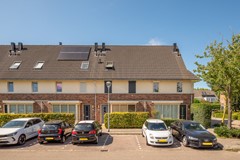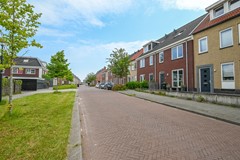Dutch housing market, renting vs buying, tips for expats
Dutch Housing Market for Expats: What You Need to Know

The Dutch housing market for expats can feel like a jungle, especially if you’re new to the country. From house-hunting in popular cities like Amsterdam to understanding rental contracts full of legal jargon that your Dutch just isn’t quite up to yet—it can be overwhelming. In this article, we’ll dive into the key things you need to know about the housing market in the Netherlands, including the differences between renting and buying, and the current trends that are shaping the market.
The Current Dutch Housing Market for Expats
The Dutch housing market in 2024 is quite a rollercoaster. You may have heard stories about skyrocketing house prices or people searching for months to find a place to live. Unfortunately, those stories are often true. The demand for homes in cities like Amsterdam, Utrecht, and The Hague is enormous, while the supply remains limited. For expats, who often have no idea where to start, this can be especially challenging.
Rental prices are generally higher than you might be used to, especially in the Randstad (the urbanized area in the west of the Netherlands). The good news? The market is slowly stabilizing, and more and more new homes are being developed with expats in mind. But, that doesn’t mean you can jump in without a plan—being prepared is key when moving here.
Differences Between Renting and Buying in the Netherlands
Renting or buying? This is probably one of the first questions that crosses your mind when thinking about where to live in the Netherlands. Let’s break down the key differences:
Renting:
- Flexibility: Renting is a good option if you’re not sure how long you’ll stay in the Netherlands. Expats with temporary contracts often go for this option.
- Costs: Rental prices in popular cities are high, but you have fewer worries about maintenance or fluctuating mortgage rates.
- Availability: Finding a rental in big cities can be tough, especially if you're looking for something affordable.
- Regulations: There are strict rules around rental contracts and rent protection in the Netherlands. This can work in your favor, but make sure you understand the rules (or have a local to help you out).
Buying:
- Investment: If you’re planning on staying in the Netherlands for the long term, buying can be a good investment. House prices keep rising, and you’ll build equity instead of paying rent.
- Costs: Buying a home comes with higher upfront costs than in many other countries. Think of real estate agent fees, transfer tax, and maintenance.
- Mortgage: Getting a mortgage as an expat isn’t impossible, but there are conditions. The bank will look at your income, contract length, and whether you have a permanent contract.
- Market behavior: In some areas, you may encounter fierce bidding wars, especially in cities where homes sell like hotcakes. It’s not uncommon to bid above the asking price.
Trends and Developments in the Dutch Housing Market
Looking at the Dutch housing market today, we can spot a few interesting trends that also impact expats:
- Sustainability is a hot topic: There’s growing demand for energy-efficient homes. Many new-build houses focus on sustainability, which might interest you if you’re looking for a green lifestyle.
- Expats are a target market: More and more property developers are focusing on expats, particularly in cities like Amsterdam and Rotterdam. This means new housing concepts are being developed specifically for international professionals.
- Suburbanization: Due to high city prices, more people—including expats—are moving to surrounding towns and smaller cities. Places like Haarlem, Leiden, and even Almere are becoming increasingly popular.
- House prices continue to rise, but more slowly: While the peak of extreme price hikes seems to be over, houses in the Netherlands are still becoming more expensive. If you're considering buying, it might be smart to act quickly.
Tips for Expats Navigating the Dutch Housing Market
As an expat looking for housing in the Netherlands, there are a few things you really need to know:
- Act fast: Whether you're renting or buying, competition is fierce. Register with real estate agents and platforms like Funda and Pararius.
- Watch out for language barriers: Most landlords and agents speak English, but some legal documents are only in Dutch. Get help or a translation if there’s anything you don’t understand.
- Know your tenant rights: The Netherlands has strong tenant protection laws, so you’re not at the mercy of the landlord’s whims. Make sure you know your rights.
- Research the neighborhood: Not every neighborhood in Amsterdam or Rotterdam is the same. Some areas are lively and charming, while others might not be as desirable. Do thorough research on where you want to live.
FAQ: Frequently Asked Questions About the Dutch Housing Market for Expats
- Is it hard to rent a house in the Netherlands as an expat?
Yes, it can be challenging due to high demand and limited availability. Start your search early and be well-prepared. - Can I get a mortgage as an expat?
Absolutely, but it depends on your income situation and contract. Many banks offer special mortgage products for expats. - What are the average rental prices in Amsterdam?
For an apartment in central Amsterdam, you’re looking at €2,000 to €2,500 per month on average. Outside the center, you might find something cheaper, but prices remain high. - How long does it take to buy a house in the Netherlands?
The buying process can take 2 to 3 months, depending on the paperwork, mortgage, and how quickly the seller wants to move. - Are there real estate agents who specialize in helping expats?
Yes, many real estate agents focus specifically on expats. They can help not only with finding a home but also with understanding the local market.
Conclusion
The Dutch housing market for expats offers both challenges and opportunities. Whether you decide to rent or buy, it's important to be well-prepared. Take the time to research your options, use expat-friendly services, and don’t be afraid to ask for help. And remember: the Dutch housing market can be tricky, but with a little patience and persistence, you’ll eventually find that perfect place to call home.




-01.jpg)

